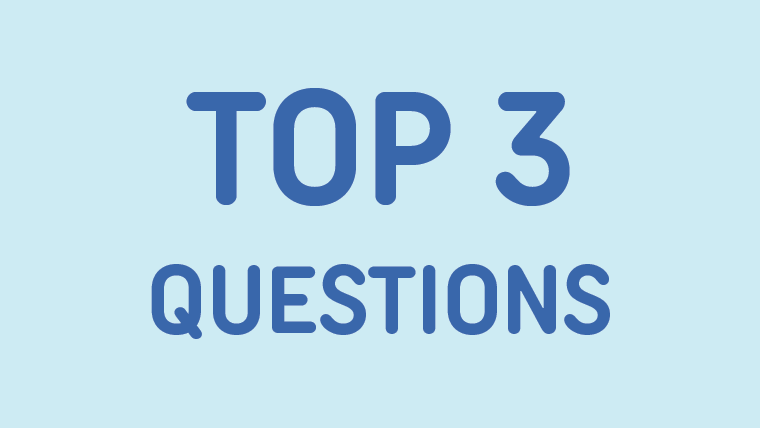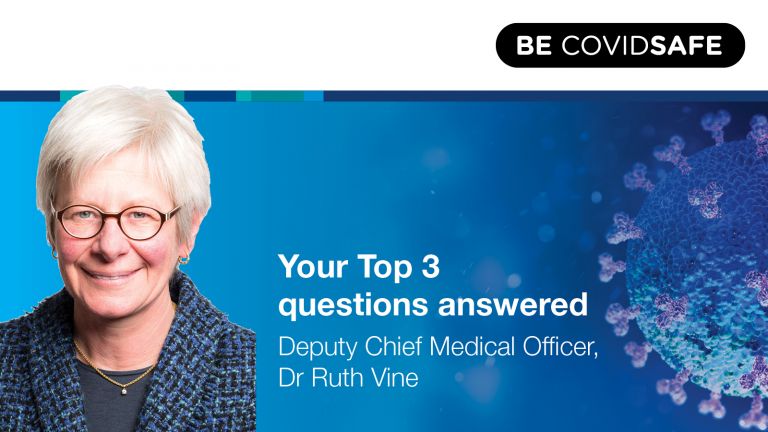
Good morning. My name is Ruth Vine, I’m the Deputy Chief Medical Officer for mental health. And my shout out today is for all those people who are queuing to get their vaccination done in some of the new mass hubs, and also for people who’ve got friends and family overseas that they really want to see, and they want to see soon. So today, I’m going to answer three questions.
First question, when will someone need to go to hospital for a mental illness?
Yeah, thanks for that question. So, firstly let me just say that there are, inpatient beds, hospital beds, for people with mental illness or psychiatric illness, in both the public and the private sector. And most often, a person will need to be in hospital for a mental illness, for a whole range of different diagnoses, but for particular reasons, and the reasons might be, that the illness is very severe and they really can’t look after themselves at home, they really can’t be safe at home, they might be, be unable to self-care, they might be having thoughts that they don’t want to be around, that they don’t want to live in this world. So, there might be safety reasons why a person needs to be in hospital. But also a person might need to be in hospital when the, when the illness is severe and the treatment is quite complex, and they need to be thoroughly, sort of supported, and assessed, and seen by doctors, as well as nurses, maybe as well as other health professionals, including psychologists and others, so they might need some investigations and have their treatment stabilised. But, the vast majority of care for people with psychiatric illness still happens in the community, sometimes, people will come to those hospital beds through an emergency department, sometimes it will be a direct arranged admission and that particularly happens in the private sector. I should also just mention, that some people who go to hospital for mental illness, come in under mental health legislation. That is, they come in in as a compulsory patient. That’s for the shortest time possible and it’s to keep people safe and get treatment started. Thank you very much.
Second question, what are the signs to look out for if you think a friend or family member may have an eating disorder, and what steps should be taken to support them?
Yeah thanks for that. Often people who develop an eating disorder, it can, it can develop quite gradually, and it can be quite hard to notice. Someone just starts paying a bit of extra attention to their diet, or they seem to start exercising and then you start worrying that hang on, this diet’s getting too narrow, eating behaviours are getting really odd, maybe the person seems to exercise, exercise, exercise all the time, and associated with that, is losing more weight, than even they might have intended at the beginning, and certainly that you as their family or friend think is reasonable. And sometimes, there are other behaviours, eating disorders can also be associated with, eating too much, often eating secretly and even self-induced vomiting. So, there are different patterns, but really the common thing is that the person goes too far and sort of has lost control of it. And when you’re worried about this, a few things I’d suggest, firstly get informed, there’s lots of good information on websites, you can go to the butterfly foundation, or national eating disorders collaboration, or the centre of excellence in eating disorder, they’ve all got good websites with good information, so you get primed and then, it’s absolutely appropriate to express your concern and ask if there’s anything you can do to help, it’s always better to get help early than to wait for a long time when those behaviours are really ingrained and the person really has sort of lost control of where they want to go. So find out, get help and help that person to get help.
And finally, we often hear that people with mental illness face stigma or discrimination, is this true?
Look sadly, I think that is true. And just to perhaps explain just a little bit, stigma, stigma, is sort of when we, we view, some particular aspect of a person in a negative way, or in a derogative, derogatory way, and then when a stigma is attached to a person, how we behave, or how our systems behave, is unfair and discriminatory. And so, perhaps to give some examples, it’s not so much now, but there was a time, when if a person presented to an emergency department with a mental illness, some people thought, you don’t need to come to an emergency department, you are taking up the space of someone who’s got a real illness, someone who’s got a physical illness. But, I think people are much better now at understanding that mental illness can be just as severe, just as dangerous, but still. And in discrimination, we sometimes see that, again, in some forms of insurance, like health insurance or, or superannuation, or life insurance, people ask have you had a mental illness? Or have you sought treatment for a mental illness? And that might then have a negative, a negative consequence for that person’s insurance. So, it’s probably worse for people with more severe illnesses still. And I think this is relates to a lack of understanding and we don’t talk about it openly enough. I think we are much better than we used to be about some of those illnesses, like depression and anxiety, I think there is much less discrimination about that, but it’s still something we need to be really alert to and if you sort of spot it in your workplace, or in how people interact with others in their school groups, or in their community groups, it’s you know, call it out and say “hang about, any of us can develop a mental illness, that’s, there’s no negativity there.” And we absolutely shouldn’t be behaving differently or giving people lesser services or lesser recognition because of a mental illness. So I think it’s better, I think it’s still there, we need to keep working at it.
Thank you
Top 3 questions
- When will someone need to go to hospital for a mental illness?
- What are the signs to look out for if you think a friend or family member may have an eating disorder, and what steps should be taken to support them?
- We often hear that people with mental illness face stigma or discrimination. Is this true?





